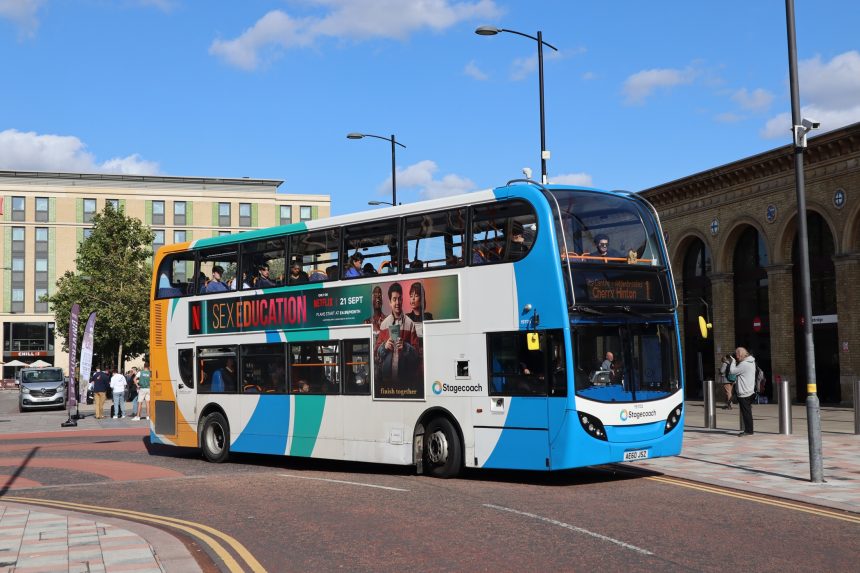Larger bus operators in England will be required to submit a significant amount of data, including financial information, to the Department for Transport (DfT) as a condition of receiving BSOG Plus funding, terms and conditions for the mechanism have revealed.
Such a “management information” exercise is part of government work via BSOG Plus and other methods to assess the funding need of the bus industry in England beyond the planned 31 March 2025 end date for BSOG Plus, DfT says. It was announced in May alongside the Bus Service Improvement Plan Plus approach.
The information requirement applies to all “BSOG units” that received more than £1 million in BSOG in 2021/22. In addition to the five large groups (for which all operating companies are in scope), also listed by DfT as subject to this condition are Blackpool Transport, Nottingham City Transport, Reading Buses, Rotala, Transdev Blazefield, and Wellglade Group.
Other operators receiving BSOG Plus may voluntarily submit the management information, but they are not specifically required to do so. The data harvesting scope will include, but not be limited to, the following:
- All direct and indirect costs
- Patronage, split between farepayers and concessions
- Profitability
- Revenue sources and amounts
- Routes and route adjustments.
In addition to requiring larger operators to submit management information as a condition of receiving BSOG Plus, DfT reserves the right to carry out an open-book reconciliation with any operator that it judges should supply further clarity on the impact of the mechanism.
BSOG Plus will be paid to eligible operators in addition to BSOG. It is based on the most recent BSOG claim and can be received against commercial kilometres and de minimis services only.
Under rates already publicised, from 1 July to 31 March 2024, BSOG Plus is a base 5.5p per kilometre. Above that will also be paid 13.83ppl for diesel, biodiesel and biofuels; 8.8p per kilometre for zero-emission buses; and 7.55p per kilogramme for all road fuel gas. Those rates will be revised for the 2024/25 financial year.
Transport for Greater Manchester and Transport for West Midlands receive devolved commercial BSOG Plus funding. They are free to decide their own methodology and approach to payment, DfT notes. Data sharing arrangements there will be agreed separately.
In addition to using the management information received to assess longer-term funding needs by the bus industry in England, DfT says the data could also be utilised to inform broader bus policy. It is not specified whether that may feed into work around possible extension of franchising powers.
A further factor in future funding decisions will be bus connectivity assessments, the BSOG Plus terms and conditions document notes. Those will be expected of commercial bus operators and will be coordinated by DfT “at regular intervals.”
As part of the bus connectivity assessment process, operators and local transport authorities will be expected to report via “comprehensive responses” on issues including:
- Connectivity
- Innovation
- Patronage
- Types of service.
Full terms and conditions document here.



























